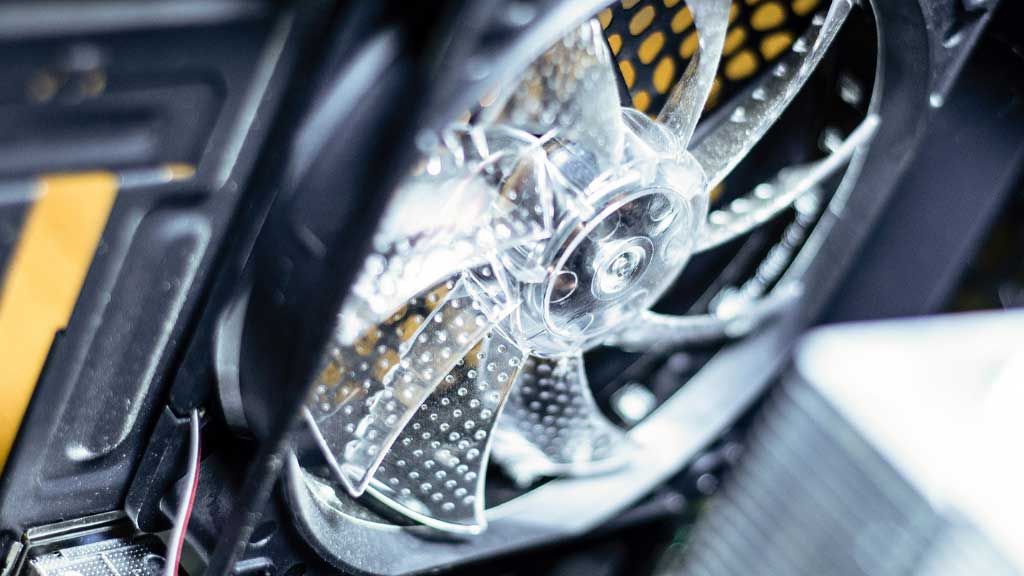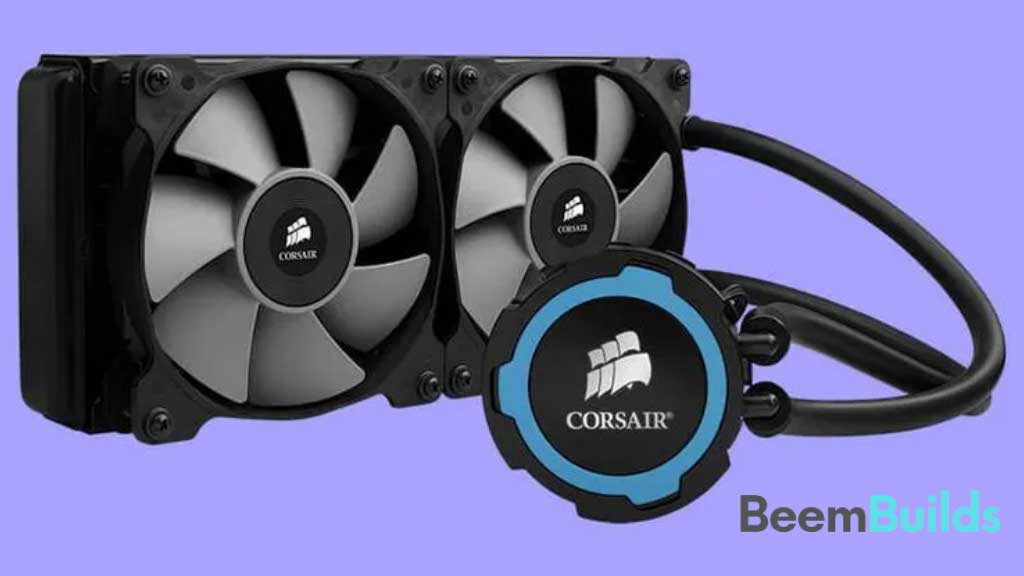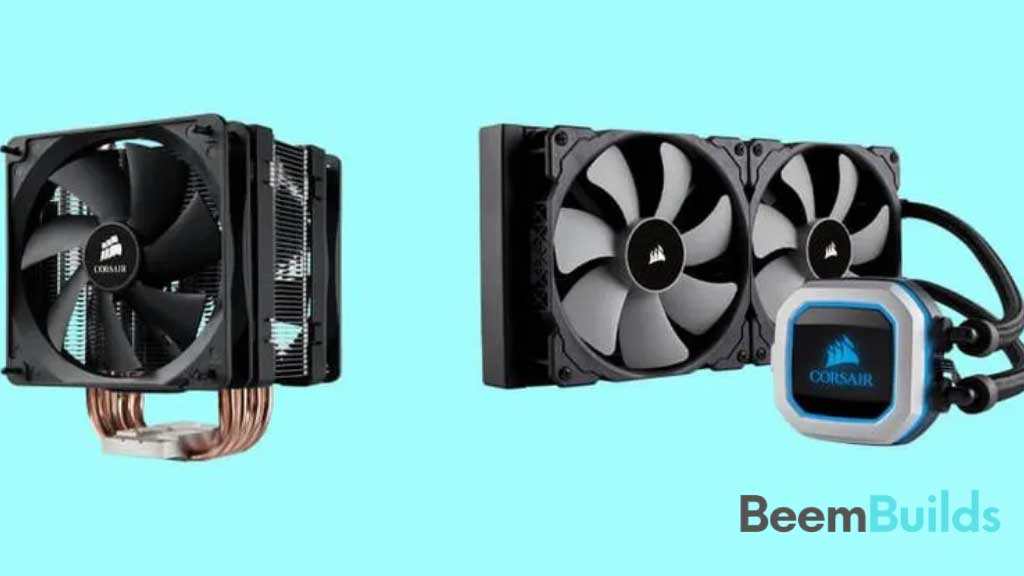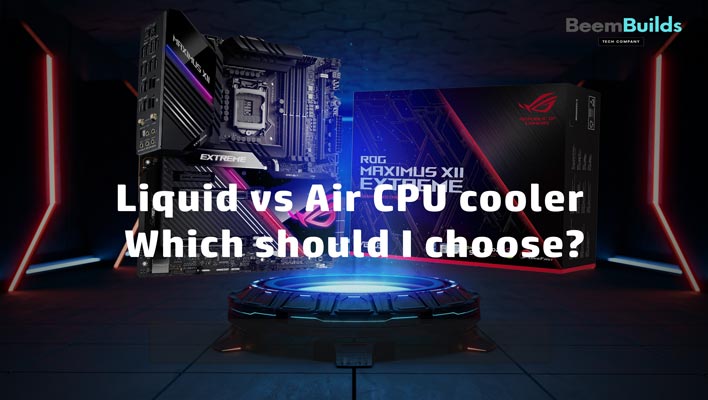It is best to use liquid cooling in this situation. If airflow is limited and a heavy overclocking plan exists, then liquid cooling is the way to go. However, air cooling can serve a variety of other purposes. Compared to other cooling systems, air cooling is more affordable and easier to use.
Nowadays, overclocking is more popular with GPUs than CPUs, even though it is more popular with GPUs. A growing number of CPUs are being cooled by liquid. You will at some point be forced to consider the possibility of liquid cooling. Following are the paragraphs in which we will explain the differences between liquid cooling and air cooling, what their functions are, and whether it is better to use liquid cooling or air cooling. You may also love to read Best CPU Coolers for Ryzen 5 3600
Table of Contents
Introduction
Air coolers and water coolers are the two main types of CPU coolers. The CPU heat is dissipated by fans and metal heat sinks in air coolers. An affordable and common option is the liquid cooler.
What is Air cooler?
 There are specific functions associated with the air cooler. It is comprised of two parts. Fan and heat sink are two separate components. Heat sinks are made of thermo-conductive materials of high quality. A copper-aluminum alloy is likely to be used most often. Among its main functions, it removes heat from the CPU.
There are specific functions associated with the air cooler. It is comprised of two parts. Fan and heat sink are two separate components. Heat sinks are made of thermo-conductive materials of high quality. A copper-aluminum alloy is likely to be used most often. Among its main functions, it removes heat from the CPU.
Even so, the heatsink already absorbs it all before it is distributed. With its extravagant spinning technique, the fan circulates air continuously to keep the heatsink cool and prevent it from overheating.
You can also love to read Best Motherboards for Ryzen 7 3700X
What is Liquid cooler?
 Liquid coolers have more complex functions and components, such as the pump, the radiator, and the hoses, compared to air coolers. However, air cooling works by spreading air through a heatsink; the liquid cooling system works by utilizing fluid rather than a heatsink. The CPU needs to be cooled, and water or any other coolant must be forced to flow through the hoses that already connect to it.
Liquid coolers have more complex functions and components, such as the pump, the radiator, and the hoses, compared to air coolers. However, air cooling works by spreading air through a heatsink; the liquid cooling system works by utilizing fluid rather than a heatsink. The CPU needs to be cooled, and water or any other coolant must be forced to flow through the hoses that already connect to it.
However, recirculating is not enough, and liquid coolants need their own heatsinks. Here comes the radiator as part of the cooling setup. In addition, it has a fan that keeps the cold air running and prevents the system from overheating.
Also read: Best Low Profile CPU Coolers
Which one is better?
 It is undeniable that liquid cooling is an efficient and powerful cooling system. Liquid coolant can be circulated more quickly when using liquid cooling.
It is undeniable that liquid cooling is an efficient and powerful cooling system. Liquid coolant can be circulated more quickly when using liquid cooling.
However, the most critical aspect is that your system must have high cooling power consumption. The cooling system for all the CPUs would be adequate if they were running at factory clock speeds. Liquid cooling is not necessary even if you plan to overclock casually until you force the CPU to cross its limits.
You may also love to read: Best CPU Coolers For i7 8700k
Which one is more budget-friendly?
The advantage of liquid cooling is that it is organized and systematic; on the other hand, the advantage of air cooling is that it is affordable. It can be manufactured at a lower price despite having a big price difference.
As you may know, maintaining and installing a liquid cooling setup is not as easy as working with computer hardware. Additionally, air coolers are easier to handle and more convenient. Keeping it looking new is as simple as cleaning it once in a while. Also, read Best Motherboard For NAS
Conclusion
We recommend liquid cooling in two situations: the first is extreme overclocking, and the second is cramped computer cases. If we force a high-class CPU to cross its limits, the best air cooler will fail to keep the CPU cool, and when they fail, the only option is water.
Ultimately, if you wish to use a Micro ATX or Mini ITX case for a gaming configuration, you will not achieve the perfect airflow. Despite disliking the sound of a constantly spinning fan, liquid cooling is a better choice.
Related:
